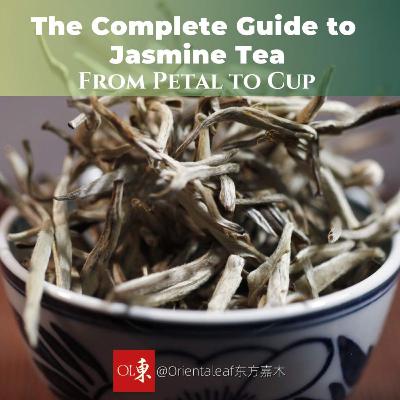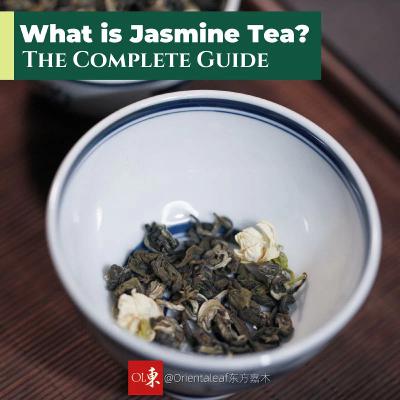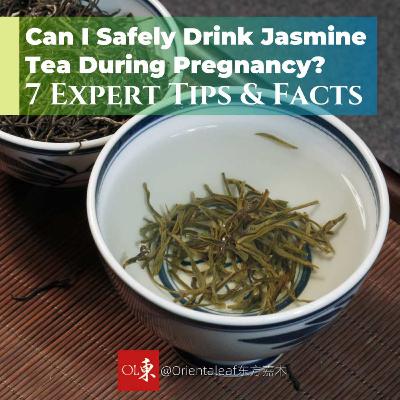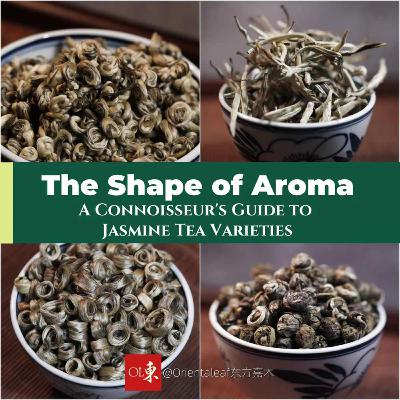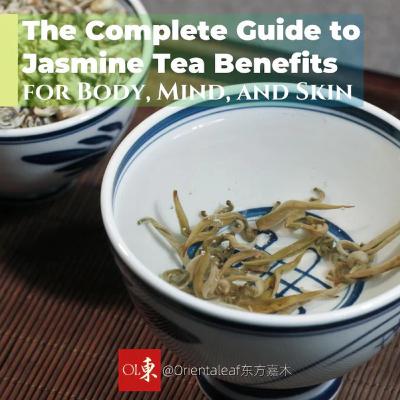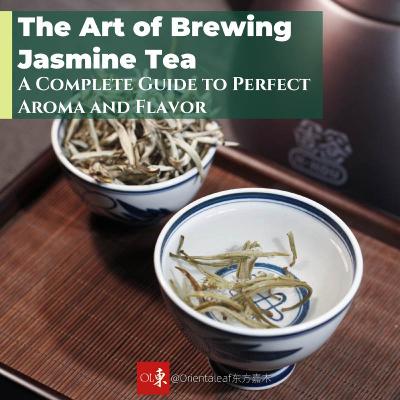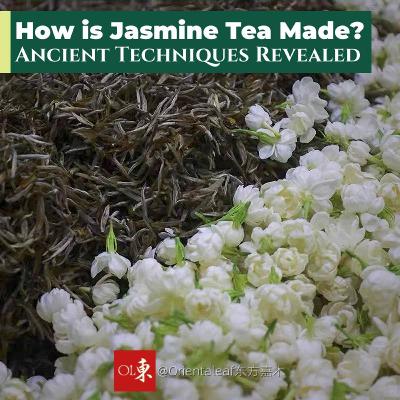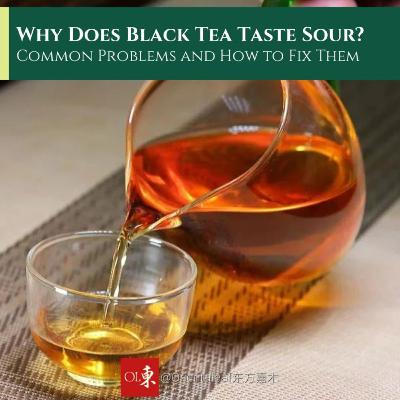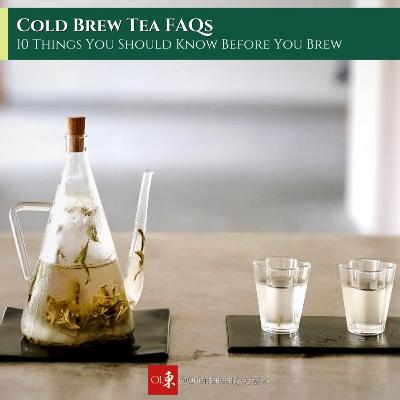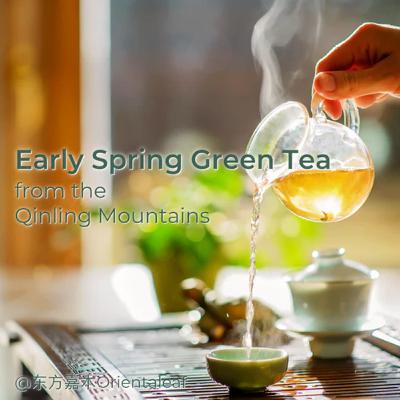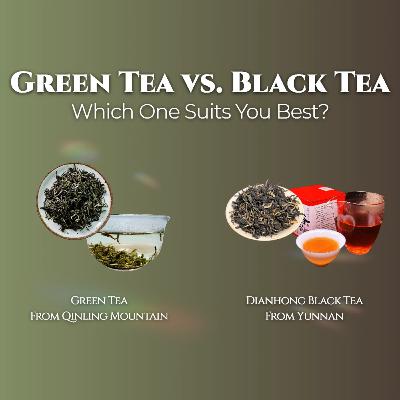Discover Chinese Tea 101
Chinese Tea 101

Chinese Tea 101
Author: Orientaleaf
Subscribed: 10Played: 3Subscribe
Share
© Orientaleaf
Description
Welcome to Chinese Tea 101, a podcast that explores the rich world of Chinese tea. Hosted by Orientaleaf, each episode dives into the flavors, traditions, and stories behind China’s cherished teas—from fresh green teas to bold black teas, fragrant oolongs, and rare whites.
Whether you're a seasoned tea lover or a newcomer, Chinese Tea 101 offers insights and tips on selecting, brewing, and enjoying authentic Chinese tea. Discover the art of tea and explore how it brings wellness and tranquility into daily life. Join us for a sip of culture and wisdom!
Whether you're a seasoned tea lover or a newcomer, Chinese Tea 101 offers insights and tips on selecting, brewing, and enjoying authentic Chinese tea. Discover the art of tea and explore how it brings wellness and tranquility into daily life. Join us for a sip of culture and wisdom!
13 Episodes
Reverse
In this episode, we dive into the world of jasmine tea—its fascinating history, unique production process, and amazing health benefits. Whether you’re a tea lover or just curious, you’ll learn how jasmine tea is made and how to brew the perfect cup at home.✨ Key Takeaways:Jasmine tea’s origins and cultural significance in ChinaHow jasmine flowers are used to scent green or white tea leaves naturallyThe health benefits of jasmine tea, including antioxidants and relaxation effectsTips for brewing jasmine tea to maximize flavor and aromaHow to choose quality jasmine tea when buying🔍 Topics:#JasmineTea #ChineseTea #TeaBrewingTips #HealthBenefitsOfTea #FlowerScentedTea #GreenTea🔗 Read the full article here:https://orientaleaf.com/blogs/tea-101/jasmine-tea-complete-guide📬 Call to Action:Subscribe for more tea stories and tips at orientaleaf.com
In this episode, we dive into the world of jasmine tea, exploring its rich history, unique production process, and delightful aroma. You’ll learn why jasmine tea is so beloved and how it can enhance your tea-drinking experience.✨ Key Takeaways:The origins and cultural significance of jasmine tea in ChinaHow jasmine tea is made by scenting green tea leaves with jasmine blossomsThe soothing flavor profile and health benefits of jasmine teaTips on brewing the perfect cup to enjoy its full aroma and taste🔍 Topics:#JasmineTea #ChineseTeaCulture #TeaBenefits #ScentedTea #GreenTea #TeaBrewingTips🔗 Read the full article here:https://orientaleaf.com/blogs/tea-101/what-is-jasmine-tea📬 Call to Action:Subscribe for more tea stories and tips at orientaleaf.com
Curious about drinking jasmine tea while pregnant? In this episode, we explore whether jasmine tea is safe for expecting mothers and what factors to consider. You'll learn about the caffeine content, potential benefits, and precautions to keep in mind.✨ Key Takeaways:Jasmine tea contains caffeine, so moderation is key during pregnancy.Some herbal components in jasmine tea may not be recommended for pregnant women.Understanding the difference between pure jasmine tea and jasmine-flavored blends helps you make safer choices.Always consult your healthcare provider before adding new teas to your pregnancy diet.🔍 Topics:#JasmineTeaPregnancy #PregnancyTeaSafety #CaffeineInPregnancy #HerbalTeaRisks #PregnancyHealth #TeaTips🔗 Read the full article here:https://orientaleaf.com/blogs/tea-101/jasmine-tea-pregnancy-safety📬 Call to Action:Subscribe for more tea stories and tips at orientaleaf.com
In this episode, we dive into the fascinating world of jasmine tea and explore the different shapes it can take. Learn how these unique forms affect flavor and brewing, and get tips on choosing the perfect jasmine tea for your palate.✨ Key Takeaways:Understand the common jasmine tea shapes and their characteristicsLearn how tea shape influences taste and aromaDiscover brewing tips tailored for each jasmine tea formExplore the cultural background behind jasmine tea shaping🔍 Topics:#jasmineTea #teaShapes #ChineseTea #teaBrewingTips #jasmineTeaGuide #orientalTea🔗 Read the full article here:https://orientaleaf.com/blogs/tea-101/jasmine-tea-shapes-guideSubscribe for more tea stories and tips at orientaleaf.com
In this episode, we explore the wonderful health benefits of jasmine tea and why it’s more than just a fragrant drink. Tune in to learn how jasmine tea can boost your mood, aid digestion, and support heart health, all while enjoying a soothing cup.✨ Key Takeaways:Jasmine tea combines green tea’s antioxidants with calming jasmine aroma for mental and physical wellness.Drinking jasmine tea may help reduce stress and promote relaxation naturally.It supports digestion and can aid in weight management when incorporated into a balanced diet.Regular consumption might contribute to better heart health by improving cholesterol levels.Enjoying jasmine tea is a delightful way to hydrate with added health perks.🔍 Topics:#jasmine tea #health benefits of jasmine tea #green tea antioxidants #natural stress relief #digestive health #heart health #herbal tea benefits🔗 Read the full article here:https://orientaleaf.com/blogs/tea-101/jasmine-tea-health-benefitsSubscribe for more tea stories and tips at orientaleaf.com
In this episode, we dive into the art of brewing jasmine tea to unlock its delicate floral aroma and smooth taste. You’ll learn simple steps to brew the perfect cup every time, whether you’re a beginner or a tea enthusiast.✨ Key Takeaways:The ideal water temperature and steeping time to preserve jasmine tea’s fragranceHow to choose high-quality jasmine tea leaves for the best flavorTips on multiple infusions to enjoy jasmine tea’s evolving tasteCommon mistakes to avoid for a balanced and refreshing cup🔍 Topics:#jasmineTeaBrewing #chineseTea #teaTips #howToBrewTea #floralTea #teaGuide🔗 Read the full article here:https://orientaleaf.com/blogs/tea-101/jasmine-tea-brewing-guideSubscribe for more tea stories and tips at orientaleaf.com
In this episode, we dive into the fascinating world of traditional jasmine tea scenting. Learn how jasmine flowers are carefully blended with tea leaves to create the iconic floral aroma that tea lovers adore. Discover the history, process, and unique qualities that make jasmine-scented tea so special.✨ Key Takeaways:Understand the centuries-old process of scenting tea with fresh jasmine blossomsExplore how the fragrance is naturally absorbed by tea leaves without artificial additivesLearn about the timing and craftsmanship involved in producing high-quality jasmine teaDiscover the cultural significance and popularity of jasmine tea in China and beyondtraditional jasmine tea, jasmine tea scenting process, how to scent tea with jasmine, jasmine tea benefits, Chinese jasmine tea, floral scented tea, natural jasmine aroma🔗 Read the full article here:https://orientaleaf.com/blogs/tea-101/traditional-jasmine-scentingSubscribe for more tea stories and tips at orientaleaf.com
Struggling with bitter or bland black tea? In this episode, we explore common black tea brewing problems and simple ways to fix them—so every cup becomes smoother, sweeter, and more satisfying.This episode is based on our detailed blog post:👉 Black Tea Brewing Problems: Common Issues and How to Fix Them🔍 What you’ll learn in this episode:Why your black tea may taste bitter or sourHow tea quality, water temperature, and brewing time matterPractical tips for better-tasting tea at homeWhen to adjust leaf-to-water ratioWhat kind of teaware can improve your tea experience💡 Whether you're new to tea or refining your gongfu skills, these tips will help you get the best out of your favorite black teas.🌿 Explore more tea insights on our website: orientaleaf.com🍵 Shop our curated Chinese teas: Browse Black Teas
"What feels light and effortless may hold hidden depth."Q1. Is Cold Brew Tea Actually Safe to Drink?Yes, but it may irritate your stomach if you're sensitive. Cold brew still contains tea polyphenols, which can be harsh on the digestive system—especially when combined with the cold temperature. If you have a sensitive stomach, it’s advisable to start with a small amount and see how your body reacts.Q2. Is Cold Brew Tea Just Cold Tea?No. Cold brew tea is made by steeping tea leaves in room temperature or cold water. It's not the same as hot tea that has cooled down. The biggest difference is the caffeine content—cold brew releases much less caffeine. Learn more about the differences between cold brew and traditional iced tea.Q3. Will Cold Brew Tea Keep Me Awake?Unlikely. Because caffeine extraction is minimal in cold water, cold brew tea usually doesn't affect sleep. The bigger concern is how your stomach handles cold drinks. If you’re sensitive to caffeine or cold beverages, consider drinking cold brew tea earlier in the day.Q4. What Kind of Bottle or Container Should I Use?Any clean bottle works. Just add tea leaves to bottled water at a ratio of 1:100 or 1:200 and leave it in the fridge for 2–4 hours. For convenience, use a cold brew pitcher, a large water jug, or an insulated bottle. Make sure the container is easy to clean to maintain hygiene.Q5. Do I Need to Rinse the Tea with Hot Water Before Brewing?No. Rinsing with hot water goes against the cold brew method. The goal is to keep extraction low, especially for caffeine. Washing tea leaves with cold water doesn't do much—it's mostly psychological. Simply add the tea leaves directly to cold water and let them steep.Q6. Can I Cold Brew Any Tea?While almost any tea can technically be cold brewed, certain types deliver better flavors. High-aroma black teas, floral green teas, and jasmine teas are more suited for this method. However, aged teas like old white or dark tea might carry storage risks and could upset your stomach when cold brewed. For tips on selecting the best teas for cold brewing, refer to our guide.Q7. Cold Brew Tea vs Iced Tea: What's the Difference?Cold brew tea and iced tea differ mainly in their preparation methods and flavors.To explore more about making perfect homemade iced tea, check out our summer tea guide.Q8. How Long Does Cold Brew Tea Last in the Fridge?Cold brew tea can generally last up to 24 hours in the refrigerator. Some suggest it can remain fresh for up to 3 to 5 days if stored properly. However, the flavor may degrade over time, and it's advisable to consume within 24-48 hours for optimal freshness. To ensure the best taste, keep your cold brew tea in a sealed container.Q9. Can I Reuse the Tea Leaves After Cold Brewing?Yes, but only if they've been stored in the fridge. Room-temperature cold-brewed leaves may have started to go bad. Re-brewed tea will taste weaker, and the longer the cold brew steeped, the less is left to extract. If you choose to reuse tea leaves, do so within 24 hours and adjust the steeping time to achieve the desired flavor.Q10. What If My Cold Brew Bottle Is Hard to Clean?Choose bottles with wide openings that can be disassembled. Rinse them right after drinking. You can also soak with hot water and baking soda—but don't do this if your bottle isn't heat-safe. Regular cleaning ensures that no residues affect the taste of your cold brew tea.
Join us on this episode as we dive into the refreshing world of cold brew tea, drawing insights from the Cold Brew Tea Guide by Orientaleaf.Forget everything you thought to knew about iced tea! We'll explain why cold brew tea is not your typical hot tea left to cool. It's crafted using a slow, cold extraction process at room temperature or in the fridge, resulting in a distinct beverage.Discover the key differences: while traditional iced tea is brewed hot and then cooled, leading to a more robust flavor with higher caffeine and tannin content, cold brew tea is steeped in cold water. This method produces a smoother, less astringent beverage that's also less caffeinated and generally gentler on the stomach. This makes it a great alternative for those with sensitive stomachs or who are sensitive to caffeine. Cold brew tea is also less likely to cause sleep disturbances due to its low caffeine content.We'll cover the best teas for cold brewing, including fragrant oolongs like Tie Guan Yin, delicate white teas, high-grade floral green teas, and even jasmine tea. These teas produce a delicate, aromatic, sweet, and refreshing taste perfect for this method. We'll also touch on teas that are best avoided for cold brewing, such as aged teas and expensive premium teas.Plus, get practical tips on how to make cold brew tea at home, including recommended containers (glass or plastic with wide openings are good, but avoid transparent bottles for storage), the ideal tea-to-water ratio (1:100 to 1:200), and steeping times (2 to 4 hours in the fridge, or up to 8 for a stronger brew). We'll even discuss whether you need to rinse the leaves (it's not necessary) and how to store your cold brew (in the fridge for up to 24 hours).Tune in to learn how this increasingly popular beverage can enhance your tea routine with its nuanced flavors and potential benefits.Full text here#ColdBrewTea #IcedTea #TeaTime #TeaLover #TeaBenefits #HealthyDrinks #TeaTips #TeaGuide #OolongTea #WhiteTea #GreenTea #JasmineTea #HomemadeTea #TeaRecipe #RefreshingDrink #GentleTea #LowCaffeine #Orientaleaf
"A tea leaf knows no jasmine, no honey, no citrus—until we show it how to remember."Key TakeawaysTea flavor is not naturally present in the leaves—it is constructed through deliberate processing techniques.Withering is the first crucial step in unlocking potential aromas, such as white floral notes, by triggering enzymatic activity.Tea cultivar and terroir provide the 'base materials', but cannot express flavor without the right craftsmanship.Techniques like tossing, oxidation, and roasting continue shaping the flavor profile, much like photo development.The six traditional tea categories are not rigid—they blur as modern techniques mix and evolve.Read full text here.
Show Notes: Spring Green Tea from the Qinling Mountains
Introduction: Explore the unique qualities of early spring green tea from the Qinling Mountains.
Growing Region: The Qinling Mountains' rich biodiversity and high altitude contribute to the tea’s distinctive flavors.
Harvest Season: Early spring harvesting enhances freshness, aroma, and sweetness.
Flavor Profile: Notes of floral and grassy undertones and a delicate sweetness.
Health Benefits: High in antioxidants and beneficial compounds, supporting wellness.
For a deeper look, visit the original post here.
In this episode, we dive into the world of green and black teas, exploring their unique characteristics, origins, and brewing techniques. Have you ever wondered why green tea tastes so fresh while black tea has that bold, rich flavor? Learn each type's distinct health benefits, flavor profiles, and cultural significance.
Orientaleaf.com, a trusted source for premium Chinese teas and authentic tea culture, brought it to you. Whether you're a tea enthusiast or a curious beginner, Orientaleaf is dedicated to sharing the art of tea through quality products and insightful content.
Please tune in to discover which tea suits your taste best and learn tips on how to brew them for the perfect cup every time!


